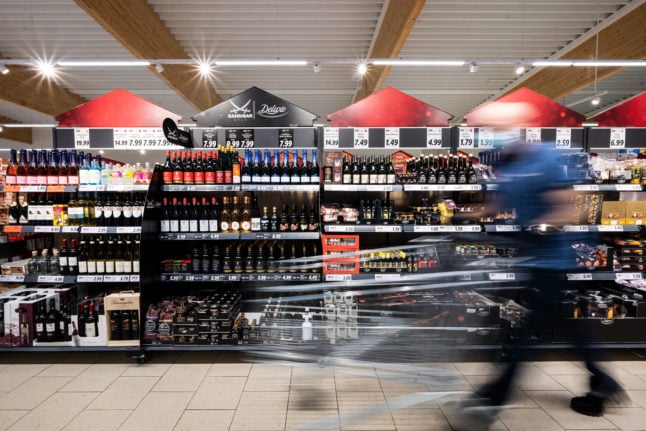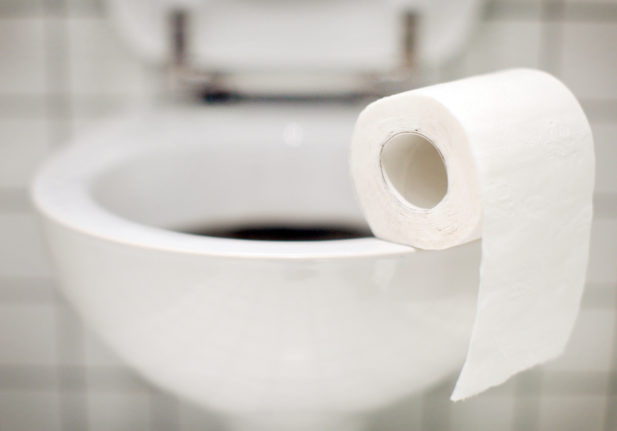Carry cash at all times
Whereas many other countries accept card or contactless payments almost everywhere (hello, Sweden!), Germany is still severely lagging behind in this area. So much so that it's very much the norm to see a sign in a restaurant or shop that says 'Nur Bargeld!' (cash only).
Now that's not to say you will never be able to pay with card in Germany. In bigger businesses like supermarkets, and even in lots of smaller shops, it is very much possible, and growing in popularity. But the fact is: you could be told at any time that card payments aren't allowed. So you have to carry cash on you, just in case.
Recently, a massive Germany-wide technical fault with a card payments terminal meant that even in places which normally accept card, people were forced to pay with cash. Although it was a tech failure, one of the issues was that the card machines hadn't been updated. It raised questions about how prepared businesses in Germany are to move into the future when it comes to paying for goods.
READ ALSO: Why are card payments getting rejected in Germany?
The supermarket is a sport
If you've experienced going shopping for food in Germany, you'll be aware that there's some serious business going on at the checkout. We're not talking about the amount of money you're spending on cheese and beer (although we respect that), but rather the speed at which the cashiers puts your items through. Call it a race. Call it a sport. Call it whatever you want - regardless, you need to have a system in place for getting everything into bags, and out the door before you receive deathly stares from staff and other customers for taking too long.

Actually, one of the best ways to do it if you have a lot of stuff (and you'll see this often), is to refill your basket or trolley with your items and go to a designated packing area to fill your bags in peace. This way you won't have to deal with the stress of filling your bags at 80 km/per hour.
However, it's not just the conveyer belt where you need stamina, you'll also have to move quickly if a new checkout line opens. In some other cultures, when a new cash desk lights up, you would let those in front of you go first since they've been waiting longer. This isn't the case in Germany. People will rush to a newly opened till, and they won't even look twice at who they're cutting in front of.
Don't try and split the bill (and look out for invites!)
It's worth keeping in mind that people in Germany generally don't split the bill in social situations. It's more common to pay exactly what you owe (unless you're a family or couple where you probably already have an arrangement in place). So in restaurants and cafes you'll find that servers say: zusammen oder getrennt (together or separately) when you ask for the bill. More often than not, a group of friends will say getrennt and pay what they owe right down to the last cent, one by one with the server.
But if someone says: Ich lade dich auf ein Bier ein (I invite you for a beer) then they will likely pay for it. That's because the word for invite (einladen) in German also has the meaning 'to treat,' - to pay for the other person. So if you specifically use the word 'invite' to ask someone out for food or a drink, you'd probably be expected to pay.
READ ALSO: 13 things foreigners do that make Germans really uncomfortable
Don't be afraid to call in sick
Foreigners from countries where there is a pressure to work even if they feel like they're on their death bed are often surprised to find how at ease Germans seem to at calling in sick to work.

Covid has meant that everyone across the world now tries to stay clear of people when they have symptoms like a cough or runny nose. But the Germans were doing this long before the pandemic hit. Their culture deems it appropriate to call in sick and stay at home if they need it. Going to the doctor (which is needed to get a sick note) on a regular basis is also fairly normal.
Of course, some jobs will have more pressure on employees than others to show up for work. But there is a much higher cultural understanding of the need for people to rest and recuperate when sick - not force themselves to work and possibly infect others.
READ ALSO: From nudity to sandwiches - the biggest culture shocks for foreigners in Germany
Tip the right way
When it comes to tips (Trinkgeld) in Germany the norm is generally around 5-10 percent. But the way you do it is also important to know. It's best to ask for a little less change back rather than leave money on the table, which is the case in many other European countries.
Our tip for tipping: Use the German phrase 'Stimmt so', which means 'keep the change'. Otherwise you can just state the amount you would like to leave when handing over money or card to the server. For instance if your food costs €8.30, you can say '€10, bitte' which means that's how much you are giving them including the tip.
READ ALSO: What to know about tipping culture in Germany
Think before asking for tap water in a restaurant
One cultural etiquette that's essential to know how to handle is tap water - you might not get it if you ask for it! Traditionally in Germany, tap water or Leitungswasser is not a free thing given to guests in cafes and restaurants. People are expected to buy bottled water. This has changed a lot in recent years, though, especially in more international places.
This is alarming for Americans in particular since free water for the table is the norm in the States.
READ ALSO: Five things to know about tap water in Germany
Toilet habits
We'll get straight into it - men in Germany are expected to sit down to pee. Not when they are out and about and there's a urinal in a public facility, but in homes - they usually have to sit down. Why? Well, to limit the splashes that often occur when men do pee while standing up. So it's out of respect for everyone in the household, no matter their sex. Sounds like a step towards equality to us.

According to a survey from 2016 (yes, it's a long time ago, but it's clearly not the most talked about subject in Germany), half of the men surveyed said they generally prefer to pinkeln (pee) standing up - but 67 percent said they urinate sitting down at home.
Learn the lessons of communication
There are a few things The Local team has learned since arriving in Germany:
- Be direct. It's not a myth that Germans are more direct than others. It's definitely better to get to the point and it's not considered impolite.
- Don't do small talk, or if you do, don't expect people to get it. It's not that Germans don't like to have a laugh (they do), but the culture of small talk many foreigners are used to in their home country doesn't exist in Germany. Shop employees don't really want to have a light-hearted chat with you. Servers in restaurants aren't that up for banter. Save these chats for people you know.
READ ALSO: Ask a German - do you ever make small talk?
- Not everyone is your friend. One thing non-Germans can struggle with is the culture of acquaintances. Germans take friendship very seriously, and it can take a long time and effort to form a friendship. Before this point, people are considered a Bekannter (acquaintance). Don't take offence. It's still a good thing and you're probably on the road to becoming a friend. But it's best not to overshare too much until you're buddies for life.
- Remember to use the appropriate formal or informal language (Sie or du) depending on who you are talking to!
READ ALSO: German word of the day - Duzen/Siezen
These are just a few unwritten rules we've come across in Germany. If you have any more you'd like to add, please leave a comment below. We'd love to hear your views!

Comments (2)